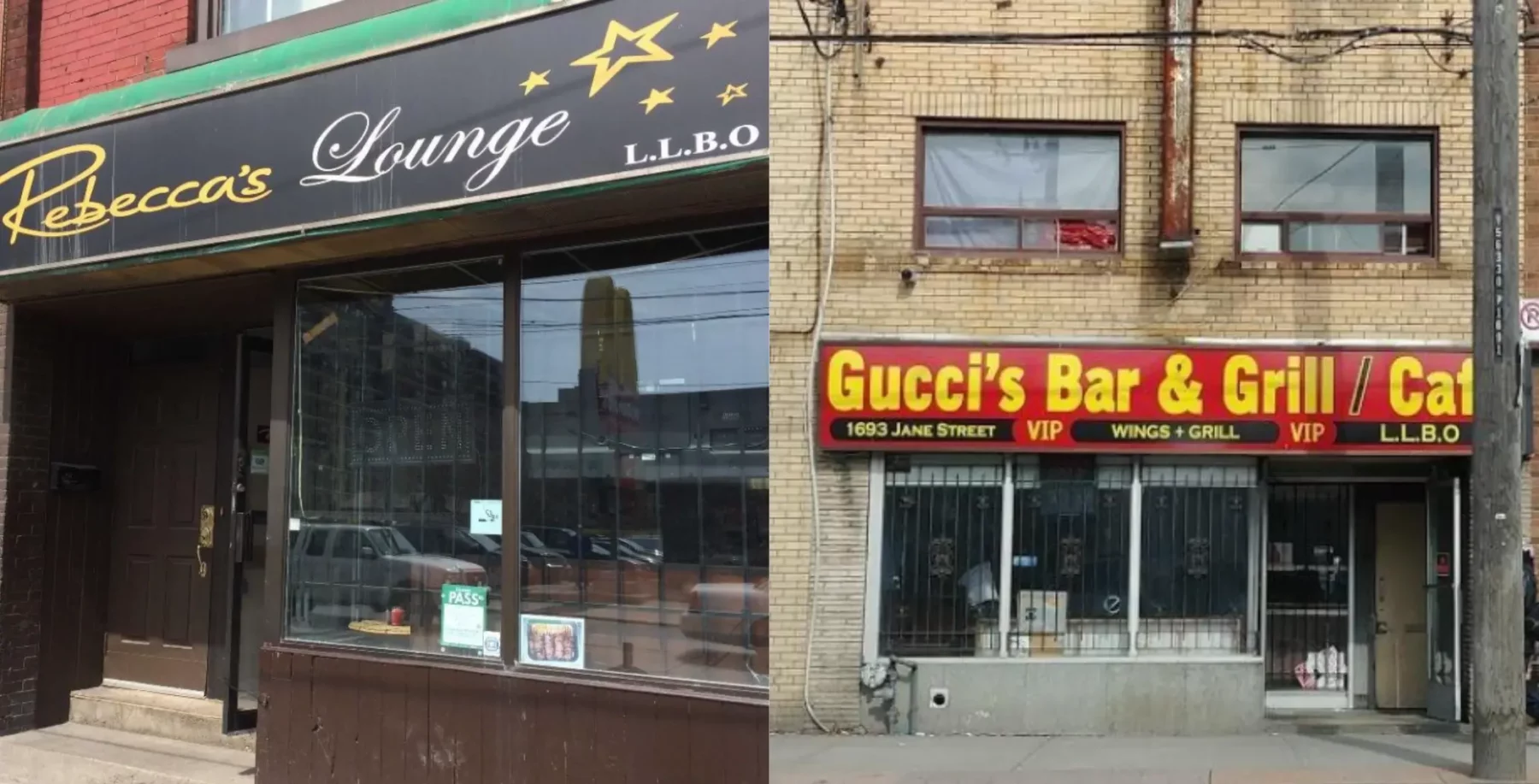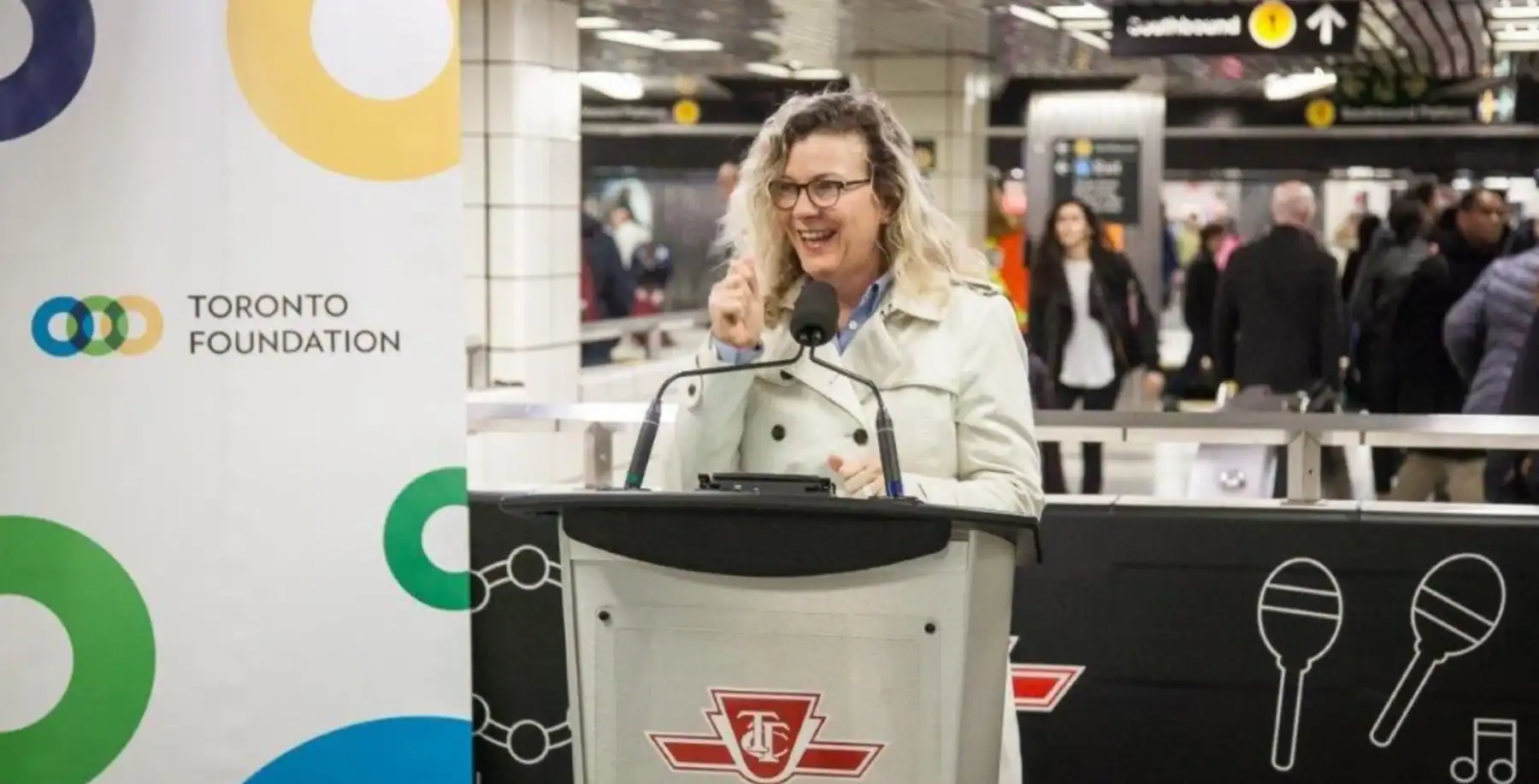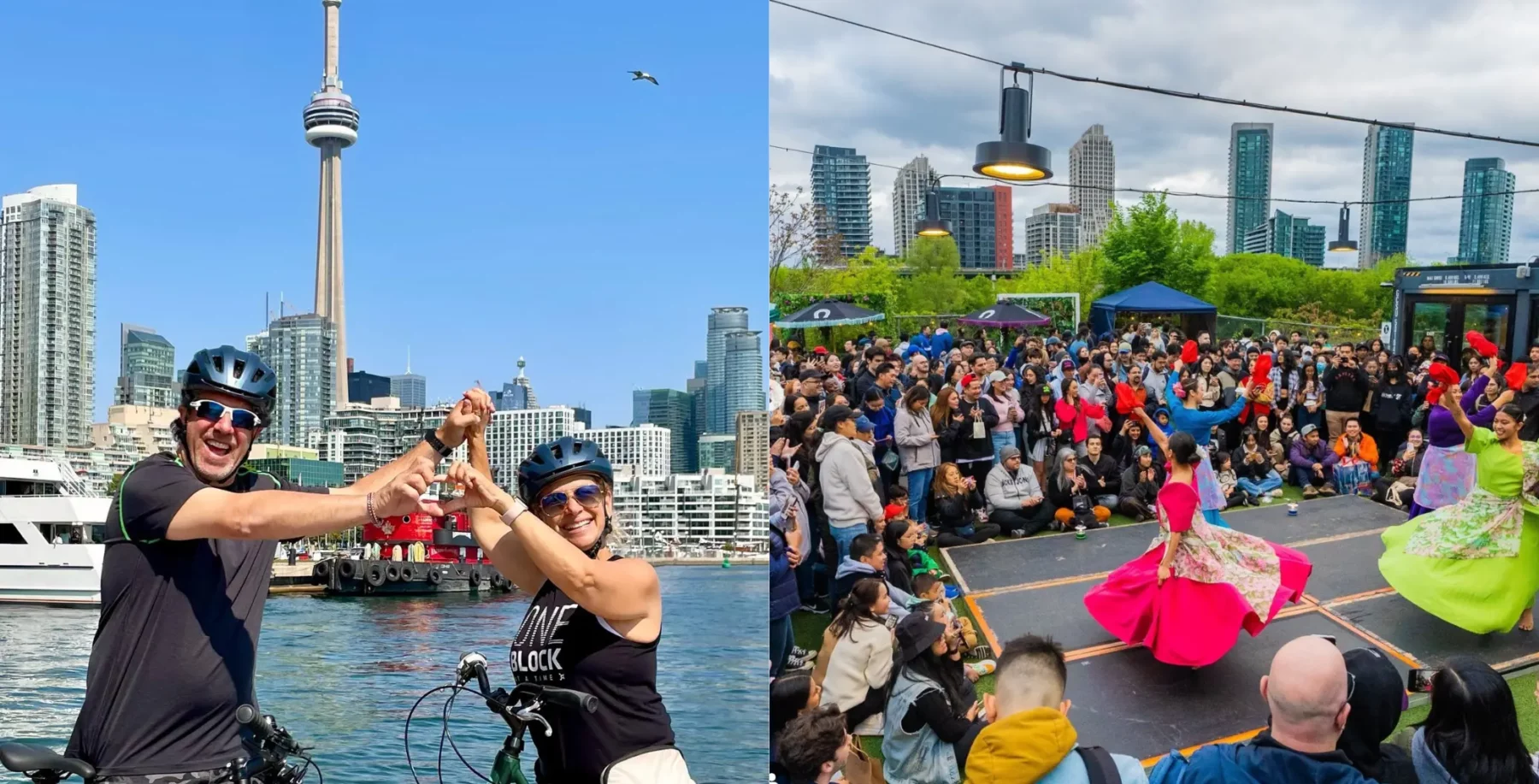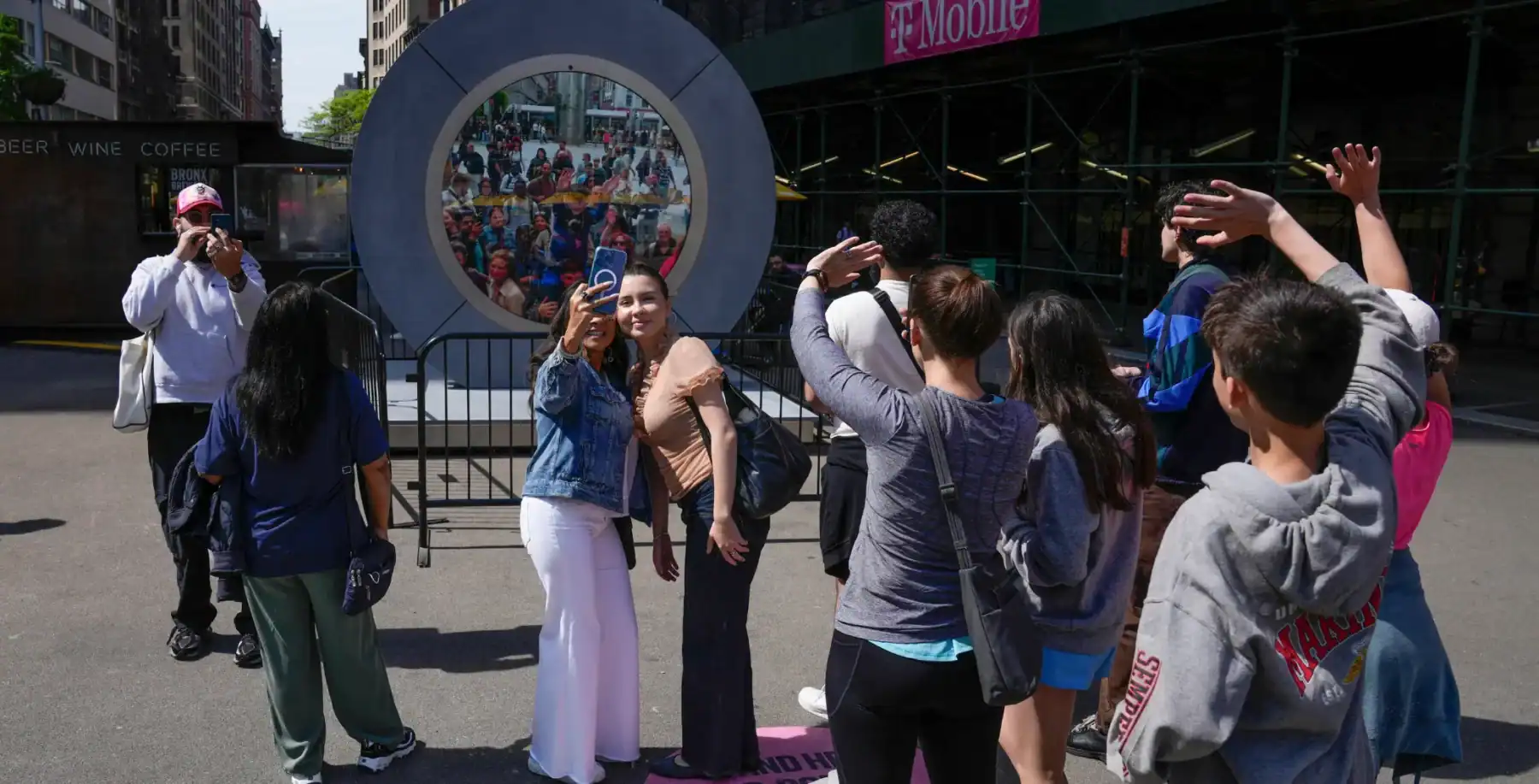
Since the Israel-Gaza war erupted in the first week of October, there have been too many casualties to count.
At least 1,200 people have been killed in Israel and over 16,000 have been killed in Gaza, according to reports.
Among the dead are people who have put their lives on the line to service others, including doctors and journalists.

In fact, reporters all over the world have been working tirelessly to bring audiences important updates surrounding the war, from big newsrooms to journalists alone on the ground.
And just like Doctors Without Borders, another organization is sounding the alarm on how people have been impacted during the war while doing their jobs.
Read More
The Committee to Protect Journalists (CPJ), an independent nonprofit organization that promotes press freedom worldwide, has been vocal about the right of journalists to report the news safely and without fear.

WHAT’S HAPPENING TO JOURNALISTS IN GAZA?
According to a new report, 63 journalists and media workers have been killed in the Middle East as of Dec. 6. This includes 56 Palestinians, four Israelis, and three Lebaneses.
That’s not all, 11 journalists were reported injured, three journalists were reported missing and 19 journalists were reported arrested.

According to the CPJ, there have been multiple assaults, threats, cyberattacks, censorship, and even killings of journalist’s family members.
CPJ told Now Toronto that no one was ever held accountable for the deaths of some journalists and that a “deadly pattern” found that many journalists killed were clearly identified as members of the media or were inside vehicles with press vests at the time of their deaths.
“CPJ emphasizes that journalists are civilians doing important work during times of crisis and must not be targeted by warring parties,” Sherif Mansour, CPJ’s Middle East and North Africa program coordinator, said in a statement.
“Journalists across the region are making great sacrifices to cover this heart-breaking conflict. Those in Gaza, in particular, have paid, and continue to pay, an unprecedented toll and face exponential threats. Many have lost colleagues, families, and media facilities, and have fled seeking safety when there is no safe haven or exit,” he added.
Now, over 200 Canadian journalists have signed a petition calling on an immediate end to the threats against Palestinian journalists who are “risking life and limb to bring us stories from the ground, without whom we would all be in the dark.”

Joyce Smith, associate professor at Toronto Metropolitan University and expert in representation of religion in news media, told Now Toronto that the number of journalists killed while on the job is nothing short of “horrific” as is the eye-opening number of casualties.
“Overall, there hasn’t been much reporting on journalists’ deaths because there is such an overwhelming number of civilian casualties,” she said in an interview on Wednesday.
RELIGION REPRESENTATION IN MEDIA
The National Council of Canadian Muslims (NCCM) said it is also “deeply concerned” that journalists, those who the world depends on for information on the situation on the ground, are being killed at such a high rate.
It added that there’s also a larger conversation about religious representation in the media.
“We know that the wider media has often struggled to centre Palestinian and Muslim voices during this conflict and beyond. We also know that Islamophobia has become a systemic issue across Canada,” the organization told Now Toronto in an email statement on Thursday.
“Canadians are interested in the truth. Journalists covering Gaza need to be protected, and much more can be done to highlight the violent challenges they face while doing their jobs in the region.”
The Centre for Israel and Jewish Affairs (CIJA) says it too feels its religious community is often spoken about but not given the chance to speak.
“We see instances of those looking to check a narrative box in their news reporting rather than those listening to what the Jewish community is saying. The effects of this are being seen clearly today. CTV News described a distinctly pro-Jewish, pro-Israel rally to return the hostages held by Hamas instead as a “rally in support of the war,” CIJA GTA Vice President Jaime Kirzner-Roberts told Now Toronto in an email statement on Thursday.
The misrepresentations of rallies has also been felt by the Muslim community. Most recently when Doug Ford referred to the protests as “hate rallies” and called the Palestinian flag the “Hamas flag.”
Prime Minister Justin Trudeau told reporters in November that waving the Palestinian flag does not “automatically” equate to antisemitism.
“The Jewish community is targeted by four times more hate-motivated crimes than the next religious minority, but rarely do we see media focus exclusively on the problem of antisemitism, always including other forms hate for balance – diminishing these abhorrent hate crimes by trying to equate them all together,” Kirzner-Roberts added.
According to the Government of Canada, Jews, who represent less than 1 per cent of the Canadian population, is the religious group in Canada most likely to be targeted for hate crimes.
“The demonizing narrative of Jews being pro-war, anti-Palestinian or trying to silence those with contrasting opinions imports a conflict from across the world and places Canadian Jews in an untenable position of us versus others. Unfair, biased, and incomplete narratives are pitting communities against each other, when – like any community would – we want Jews in Canada and around the world to be able to live safely, without fear of being targeted based on our religion or ethnicity. And, we want people to believe us when we tell them about the hate we are facing,” Kirzner-Roberts added.
And on the other end, an Angus Reid study this year, two-in-five Canadians outside of Quebec (39%) hold an unfavourable view of Islam. In Quebec, that number reached half (52%).
With an interest in how religion plays a role in the media, Smith says religion is a key factor in conflicts around the world, including this one in the Middle East.
She explains that if you turn on the TV it sometimes feels as though the war has brought on another war in itself: a war on religion, rather Muslims vs. Jews.
“One is feeding the other,” she said.
And these differences have sadly played out in our own streets with a rampant rise in both Islamophobia and antisemitism.
Read More
Which is interesting since there are also Christian Palestinians and Christian Israelis who have been affected by the war too, but have been overlooked.
There’s nearly 50,000 Christians in the West Bank and Jerusalem. Additionally, there are approximately 1,300 Christians residing in Gaza.

“Apart from the historic nature of the conflict, there’s so much insult to injury when you think about how important it is for many people to have some kind of religious ceremony when someone dies. And here you have thousands of people dying and they can’t have proper burials and proper grieving,” Smith said, referring to the Islamic practice of Janazah and the Jewish practice of Shiva where a deceased person must be buried within a 24-hour period of passing.
However, with the state of the war, people in Gaza have not been given proper burials and have instead utilized mass graves and rushed burials.
Smith notes that her research has shown that the majority of the news Canadians get, particularly about religion, is from foreign news.
“Locally there has been a better attempt at trying to cover examples of antisemitism and Islamophobia but I don’t know how well we also do in trying to talk about those things as they occur locally or is it always tied together with what’s happening internationally? It’s impossible to separate it from this conflict,” she said.
“When religion is covered, because we no longer in Canada have people reporting on religion as a beat, it tends to show up in times of conflict and that’s very problematic.”
SHOULD JOURNALISTS CHECK THEIR IDENTITY AT THE DOOR?
Additionally, Smith added that journalists shouldn’t be targeted for speaking up and bringing attention to subjects that personally affect them.
For example, in October, Muslim Palestinian-Canadian journalist Zahraa Al-Akhrassin said she was fired for posting comments about the Israel-Gaza war on her social media.
“Being their only Palestinian journalist in the newsroom I thought my voice would matter the most to them during these times,” she said in a video posted to Instagram.
Read More
Smith said, “None of us should have to check parts of our identity at the door when we are reporting.”
“I hope people stop thinking about the practice of journalism as being objective and rather let it be fair and as fair and balanced as possible,” she said.
“Even with religious backgrounds, the problem is when people sometimes make assumptions about the fact that if you have an identity that will affect your reporting. It should be one of the strengths that you bring that only you have an understanding of, something that somebody else doesn’t.”












